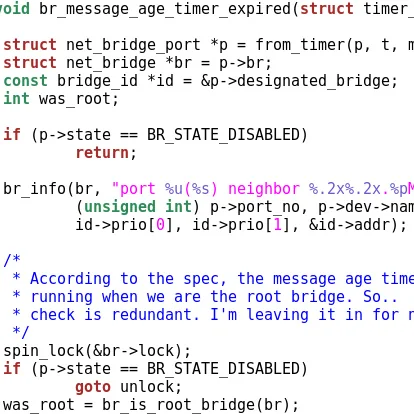What Would Be Disastrous For Linux, Open-Source

Here's a few that I thought of this morning. Feel free to share your Linux doomsday scenarios in the forums.
Patent trolls increasing their assertions against Linux and key open-source software. If the Linux market-share continues to rise, the frequency of patent attacks or free software projects being impaired by software patents will only continue to rise. Enough said.
AMD abandons their open-source support. AMD's open-source strategy and their on-staff team (namely John Bridgman and Alex Deucher) weathered the economic downturn so hopefully this effort remains in good standing (let's just not hope AMD's next CEO isn't a stark Microsoft ally), but losing this would be detrimental to the community. With the Radeon HD 8000 series hopefully hitting a new open-source milestone, any setbacks in their open-source support would be to the great dismay of their Linux desktop customers and open-source supporters. Open-source graphics support would be seriously setback. I'd also lose my number one forum poster.
Intel abandons their open-source support. While Intel doesn't currently offer any discrete graphics cards, their IGPs are still very prevalent and as of late with their Sandy Bridge hardware their support under Linux has been very compelling with great performance and H.264 VA-API video acceleration support. Losing Intel's Open-Source Technology Center (OSTC) team would be even worse though due to the larger contributions that Intel's (more sizable) open-source team makes to Mesa, the Linux kernel, etc.
Patent assertions against Mesa. Any direct legal attacks against the core Mesa (or Gallium3D) library would endager the Linux desktop. This would likely be the greatest threat to Linux user-space or in general short of claims against the Linux kernel. When it comes to graphics IP, this is a hot area and has already held up a number of features like S3TC support from being implemented in the mainline tree and other features that are protected by patents that will not expire for many years. This is preventing even core parts of the OpenGL 3.x specification from being implemented.
What makes this particularly dangerous is that there is no other open alternative for providing OpenGL support and hardware acceleration, short of starting over from scratch (or somehow salvaging ancient Utah-GLX code). Mesa is found installed on virtually every Linux desktop, whether it is used or not. If a project like GNOME or Compiz faced serious legal challenges, there's still at least alternatives out there, but not for Mesa aside from installing proprietary AMD and NVIDIA drivers. Intel support though would then be killed off along with other obscure drivers. Even if GCC was attacked, there's LLVM/Clang, Open64, and numerous other compilers out there, but when it comes to the user-space graphics, there's really only Mesa.
Red Hat folds. Whether or not you use Red Hat Enterprise Linux or Fedora, Red Hat going under or making a significant change in course for their upstream contributions would deliver a serious blow to Linux and open-source. Red Hat is likely the most serious company to Linux with its upstream contributions for the Linux kernel, GNOME, virtualization, Mesa / X.Org, and so many other projects.
The US government begins taxing open-source software. It's actually not as crazy as it sounds and could actually happen.
Share with us in the forums your frightening Linux scenarios.
44 Comments

